Steal These Lines
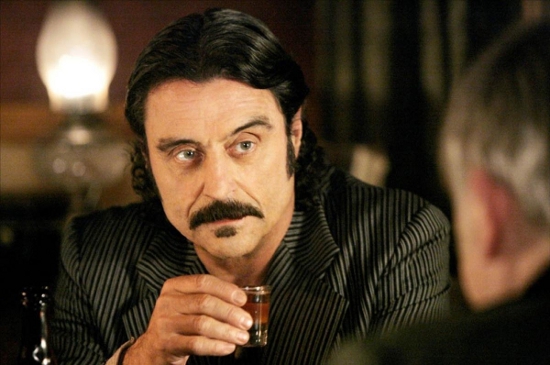 No television show loved language more than HBO’s Deadwood, but that statement comes with a caveat: It was not particularly quotable.
No television show loved language more than HBO’s Deadwood, but that statement comes with a caveat: It was not particularly quotable.
 No television show loved language more than HBO’s Deadwood, but that statement comes with a caveat: It was not particularly quotable.
No television show loved language more than HBO’s Deadwood, but that statement comes with a caveat: It was not particularly quotable.
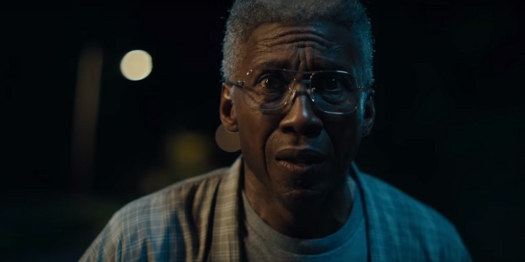 Sometimes the success or failure of a movie, book, or television show hinges on a short passage. If that small part works, so does the whole; if the crucial bit comes up short, the entire enterprise falls apart. For me with the third season of creator/writer Nic Pizzolatto’s HBO series True Detective, the moment comes late in the finale when former cop Wayne Hays drives up to the house of a person he strongly suspects is Julie Purcell, who disappeared with her brother Will 35 years ago and has eluded him ever since.
Sometimes the success or failure of a movie, book, or television show hinges on a short passage. If that small part works, so does the whole; if the crucial bit comes up short, the entire enterprise falls apart. For me with the third season of creator/writer Nic Pizzolatto’s HBO series True Detective, the moment comes late in the finale when former cop Wayne Hays drives up to the house of a person he strongly suspects is Julie Purcell, who disappeared with her brother Will 35 years ago and has eluded him ever since.
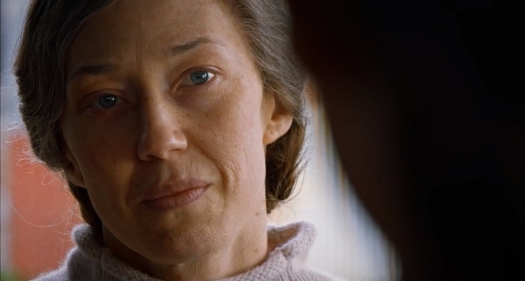 The question of what actually happened with Nora hangs over the finale of The Leftovers, but it is finally unknowable in any conclusive sense. Yet as much as the finale’s approach invites speculation, questions, and theories, it also tells us how to process it.
The question of what actually happened with Nora hangs over the finale of The Leftovers, but it is finally unknowable in any conclusive sense. Yet as much as the finale’s approach invites speculation, questions, and theories, it also tells us how to process it.
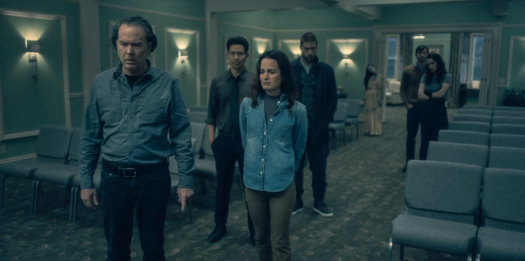 Revisiting Netflix’s The Haunting of Hill House helped clarify the fundamental dissonance of the show – that running counter to its hopeful, tidy conclusion is something far messier in both its ghost and family stories. Yet the early episodes carve out room for readings that substantially darken the whole, undermining without negating the tone of its final minutes.
Revisiting Netflix’s The Haunting of Hill House helped clarify the fundamental dissonance of the show – that running counter to its hopeful, tidy conclusion is something far messier in both its ghost and family stories. Yet the early episodes carve out room for readings that substantially darken the whole, undermining without negating the tone of its final minutes.
 Adapted from Gillian Flynn’s debut novel, HBO’s Sharp Objects is a whole bunch of greatness that, finally, amounts to not much of anything.
Adapted from Gillian Flynn’s debut novel, HBO’s Sharp Objects is a whole bunch of greatness that, finally, amounts to not much of anything.
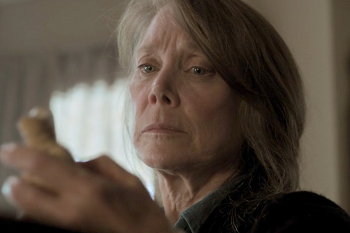 When the seventh episode of Hulu’s Castle Rock – titled “The Queen” – immediately felt very familiar, we shouldn’t have been too surprised that it drew not from Stephen King but from a famously excellent episode of another TV show whose DNA had been plainly evident in this one. And then from a great movie.
When the seventh episode of Hulu’s Castle Rock – titled “The Queen” – immediately felt very familiar, we shouldn’t have been too surprised that it drew not from Stephen King but from a famously excellent episode of another TV show whose DNA had been plainly evident in this one. And then from a great movie.
‘Treme’ S1 starts slowly, has some tedious characters, and is too proudly authentic, but Simon’s team remains expert at resonant microcosms.
‘Justified’ S1: Sly performances, character ambiguity, sharply natural dialogue, and propulsive violence elevate this backwoods pulp fiction
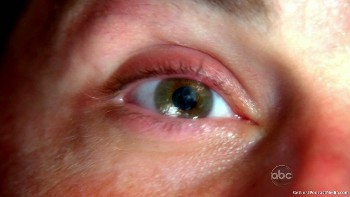 Unlike some people, I liked – perhaps even loved – the finale of Lost. It would have been churlish to deny fans who had invested six years in the show a happy ending, and while the sideways/afterlife reunion was cheap and sentimental, it worked. And it worked in part because it defied the expected coming together of the sixth season’s two universes. And it worked because it offered a payoff to those hooked by the characters and not just the mythology.
Unlike some people, I liked – perhaps even loved – the finale of Lost. It would have been churlish to deny fans who had invested six years in the show a happy ending, and while the sideways/afterlife reunion was cheap and sentimental, it worked. And it worked in part because it defied the expected coming together of the sixth season’s two universes. And it worked because it offered a payoff to those hooked by the characters and not just the mythology.
 With its last episode airing Sunday, I revisited my 2005 piece about Lost and was pleased that nothing in it embarrassed me – even though what the show has become would be incomprehensible to somebody who stopped watching way back then.
With its last episode airing Sunday, I revisited my 2005 piece about Lost and was pleased that nothing in it embarrassed me – even though what the show has become would be incomprehensible to somebody who stopped watching way back then.